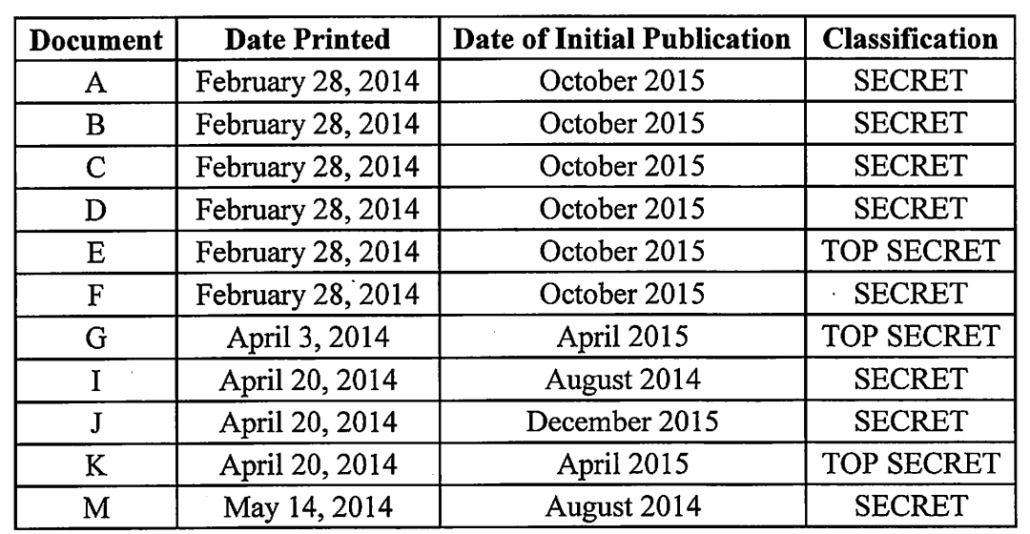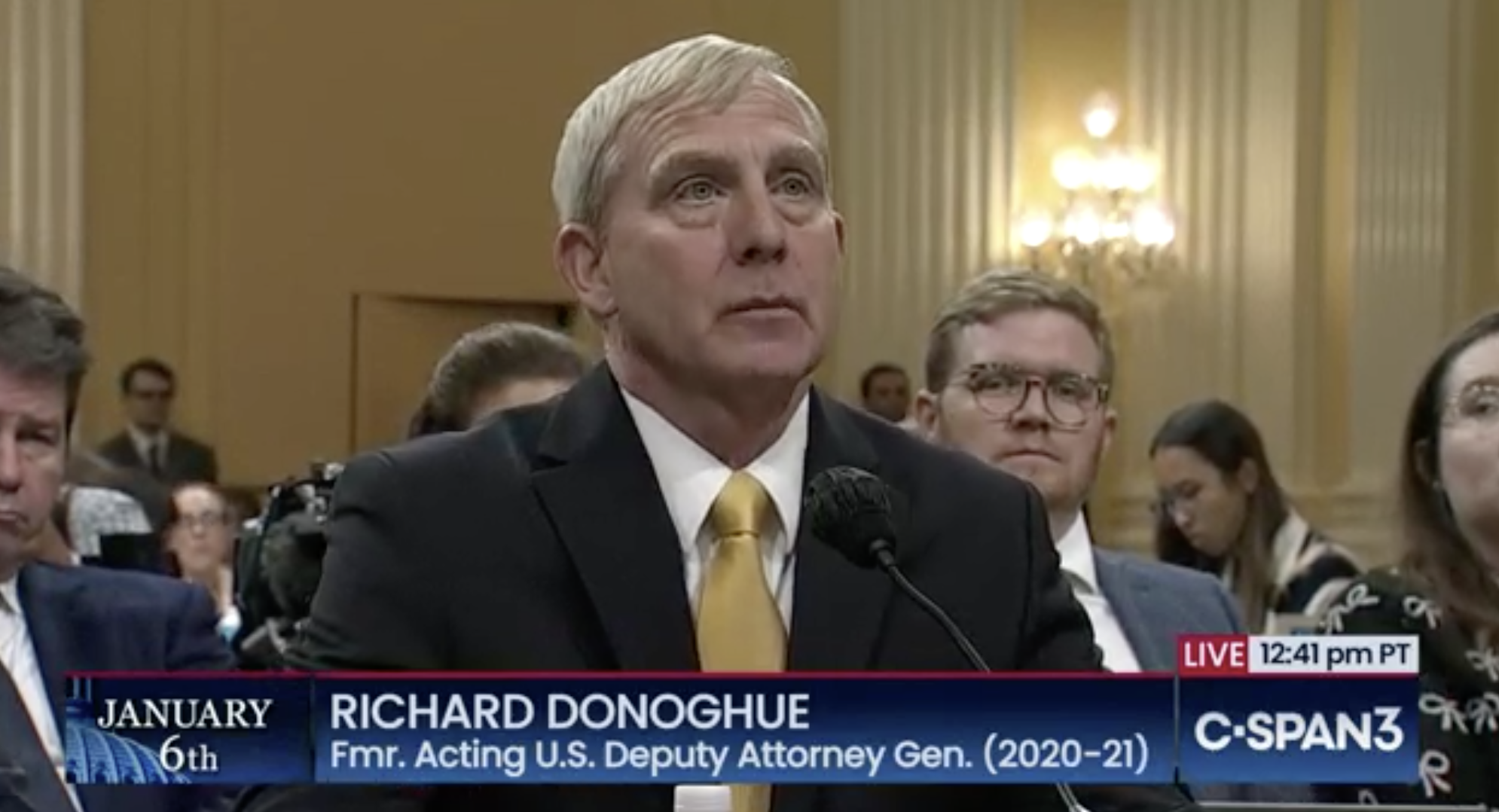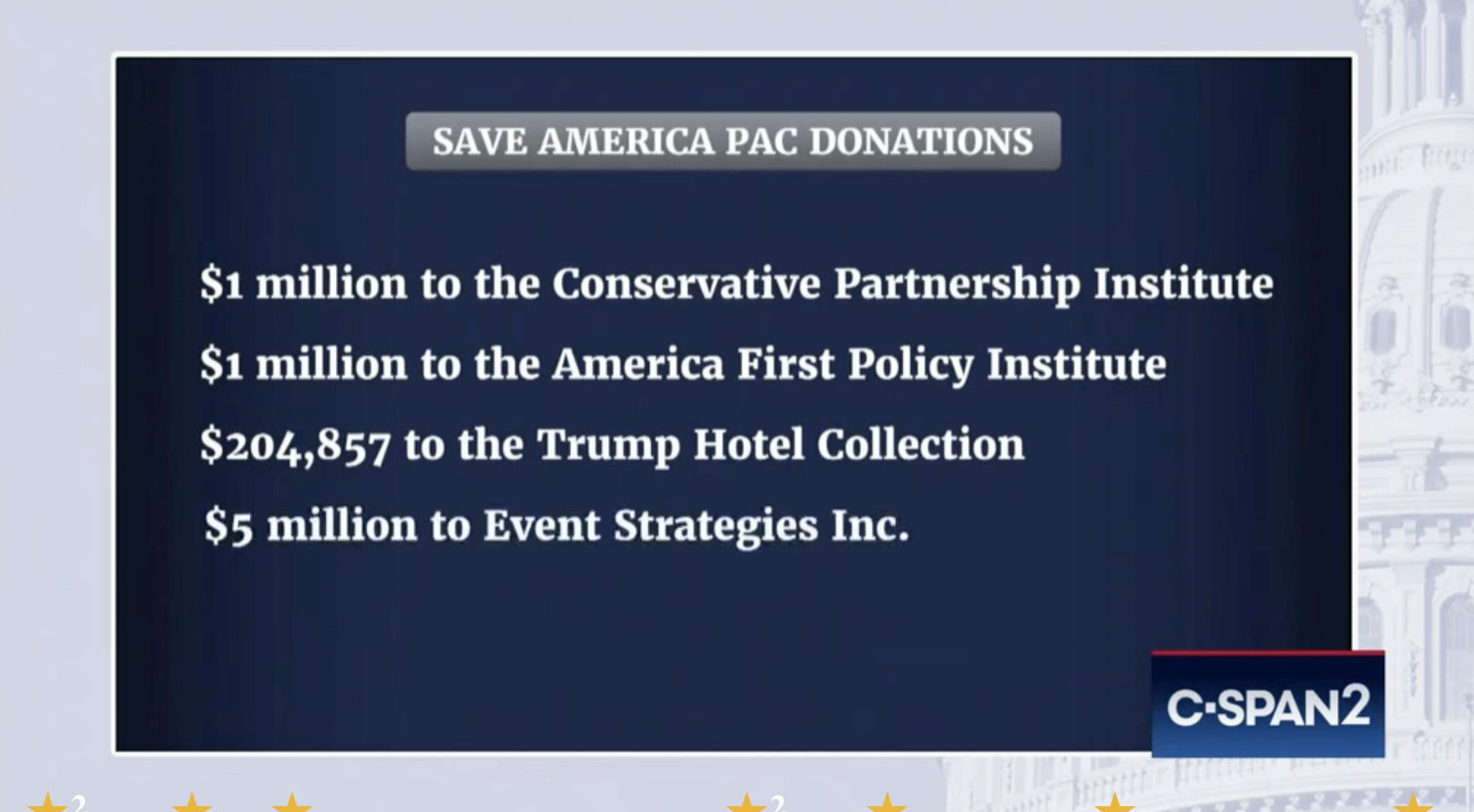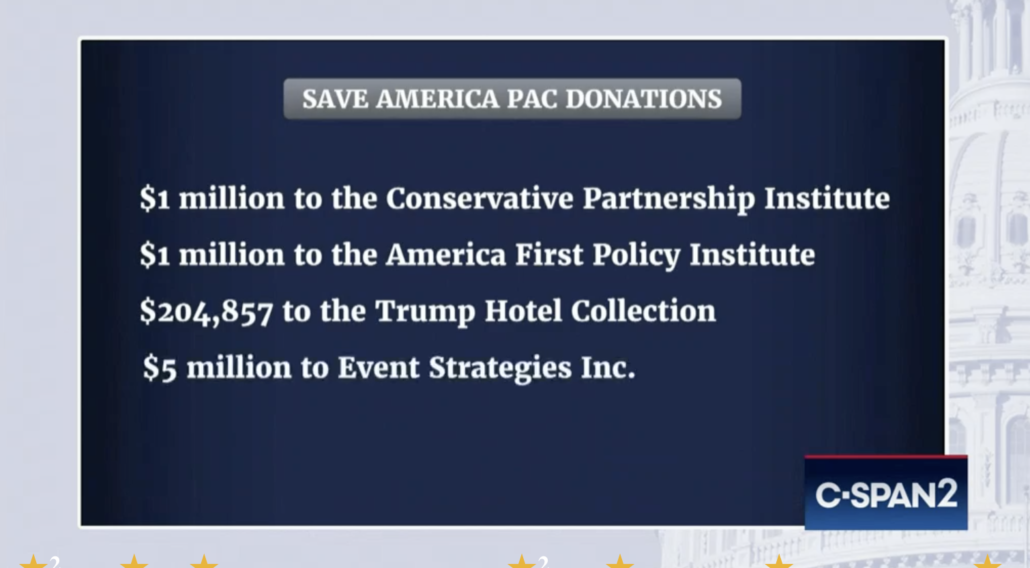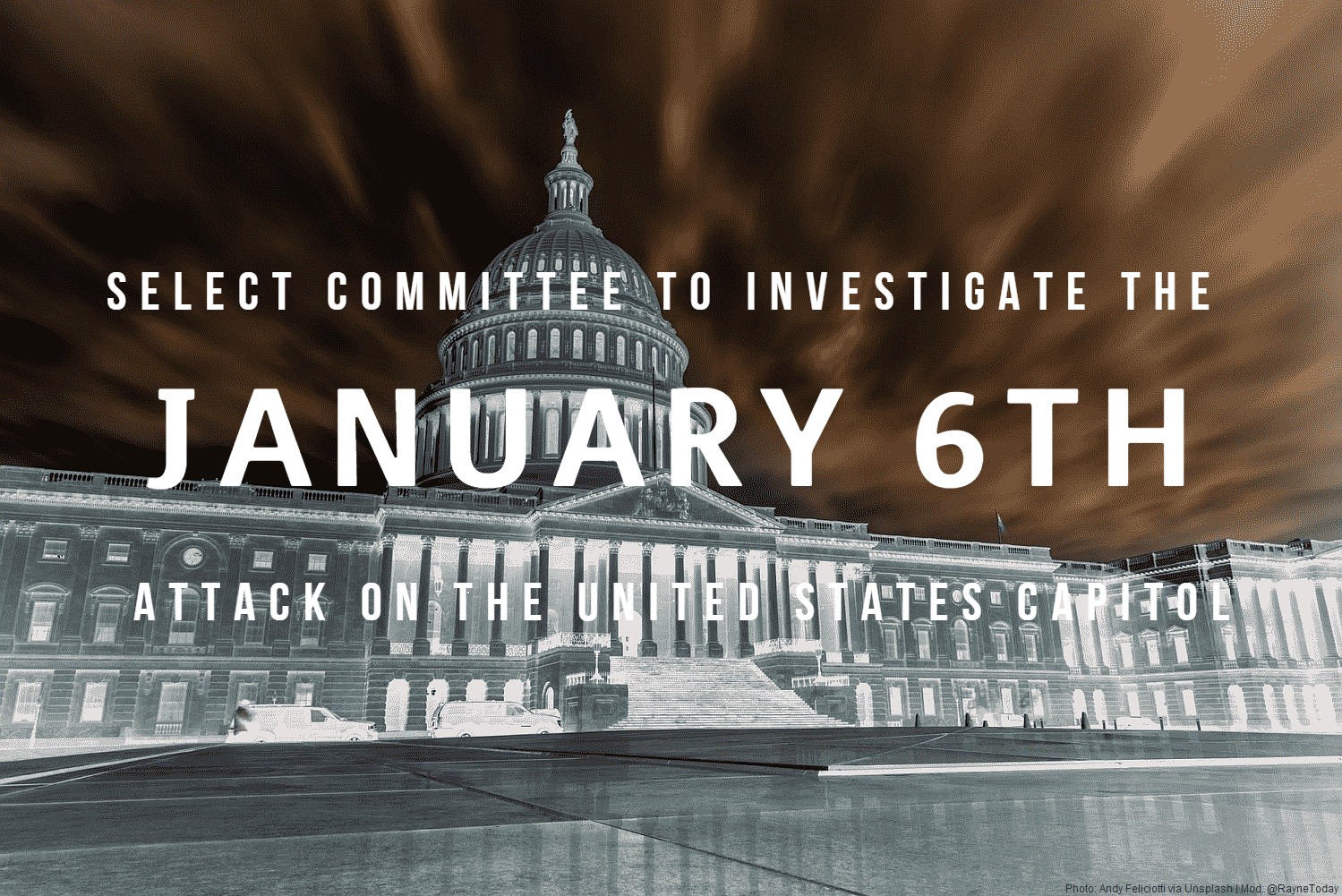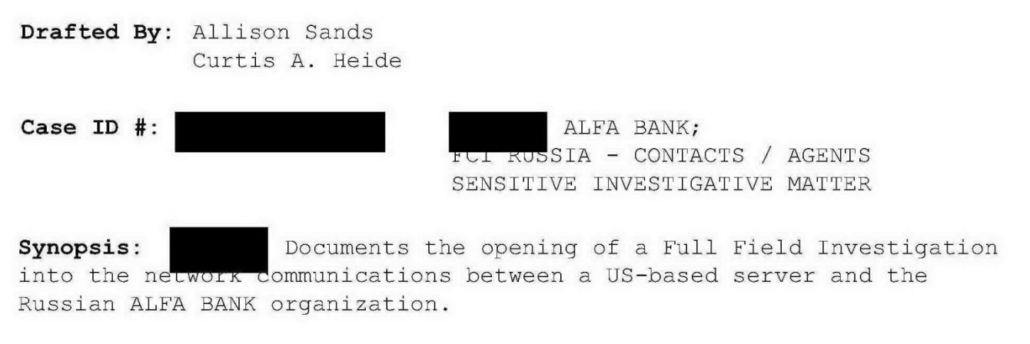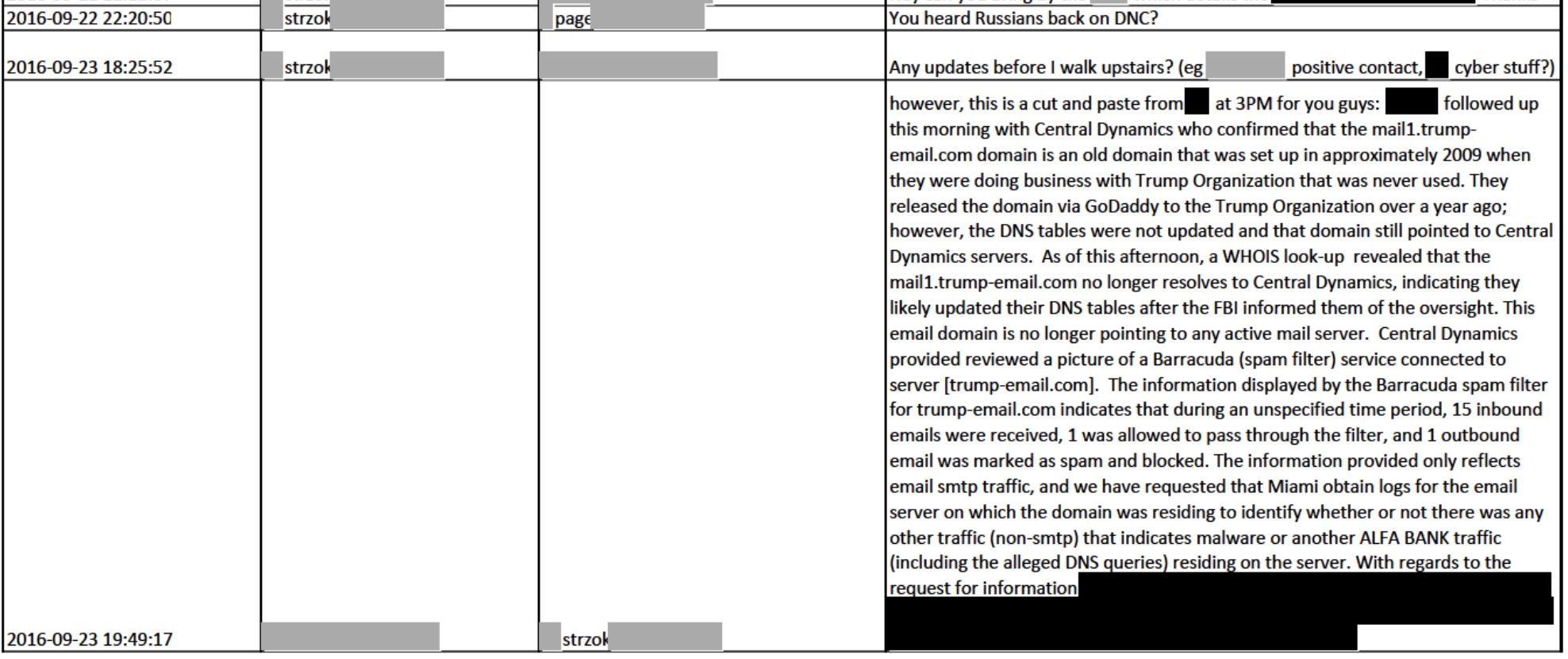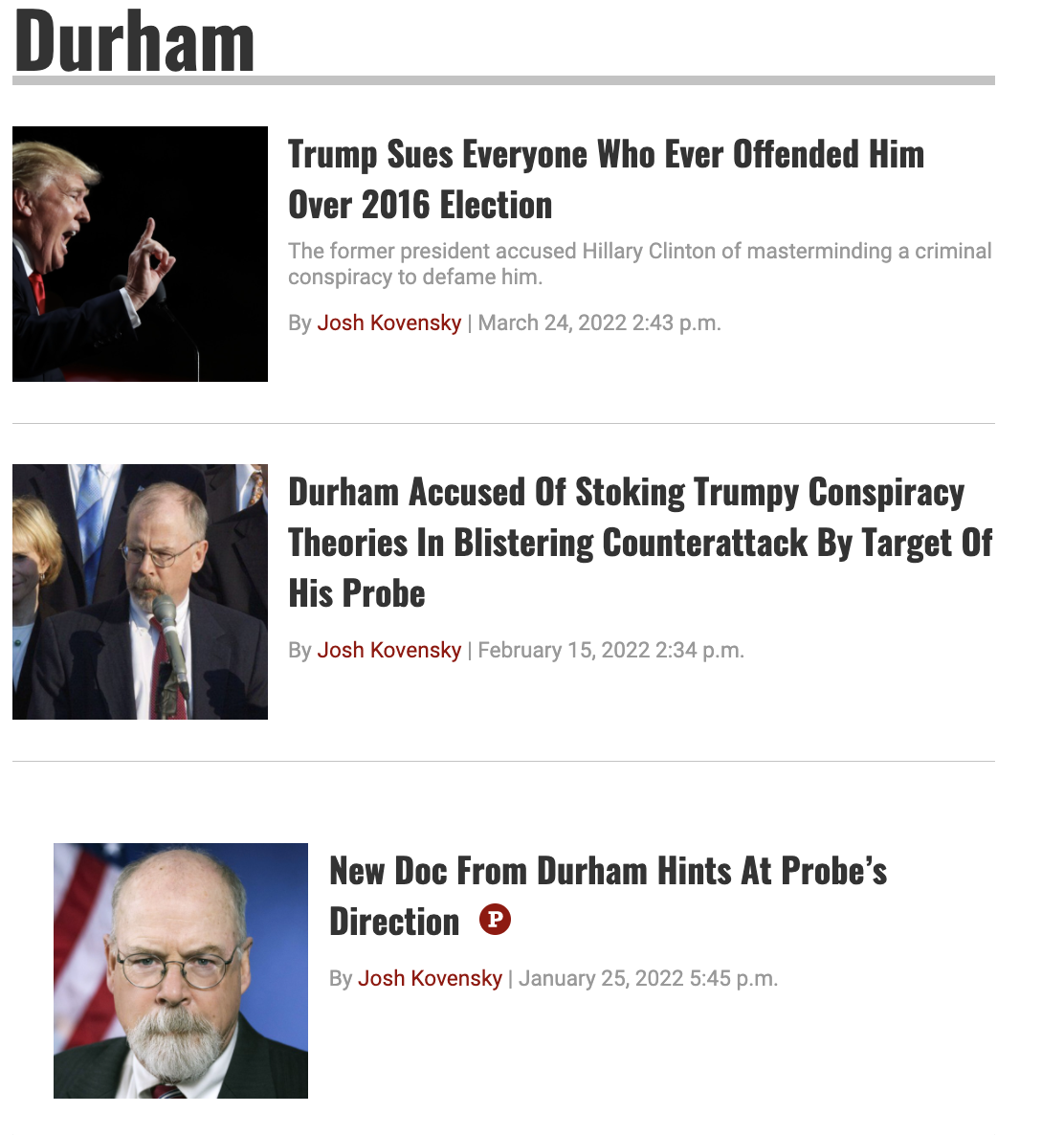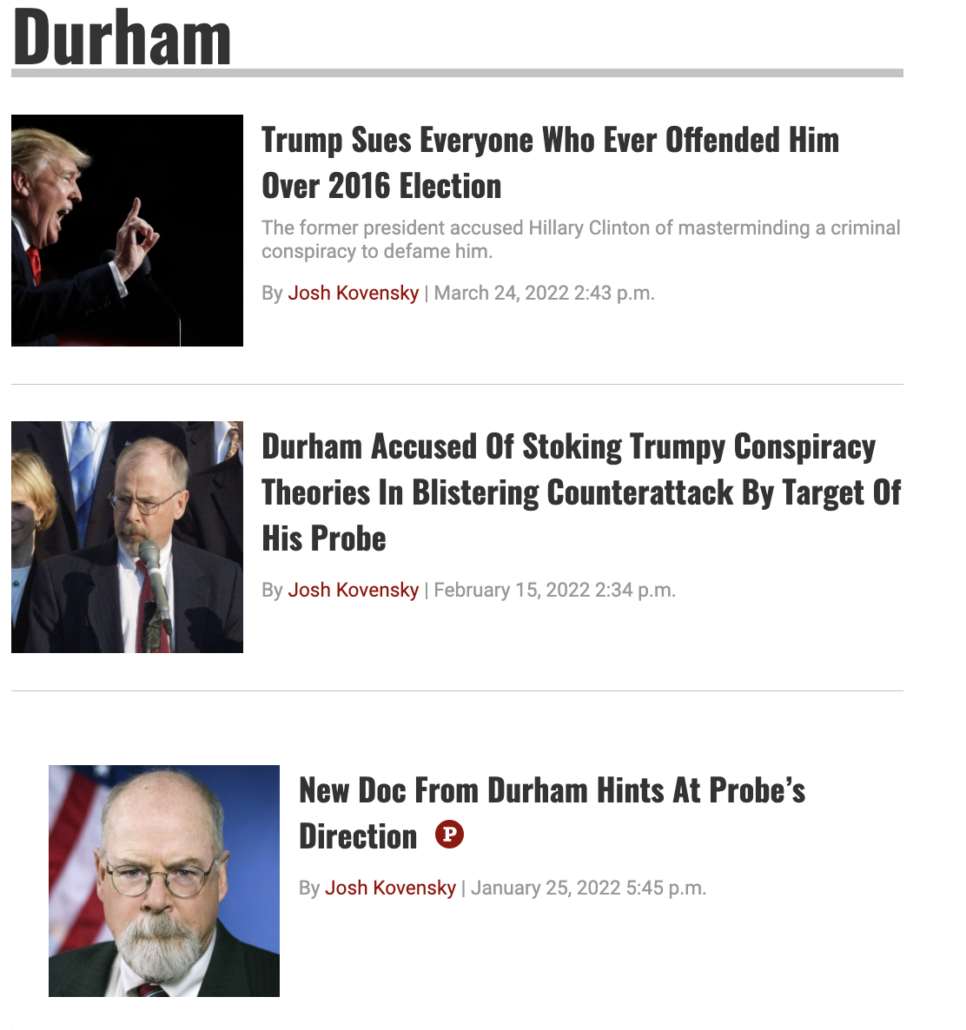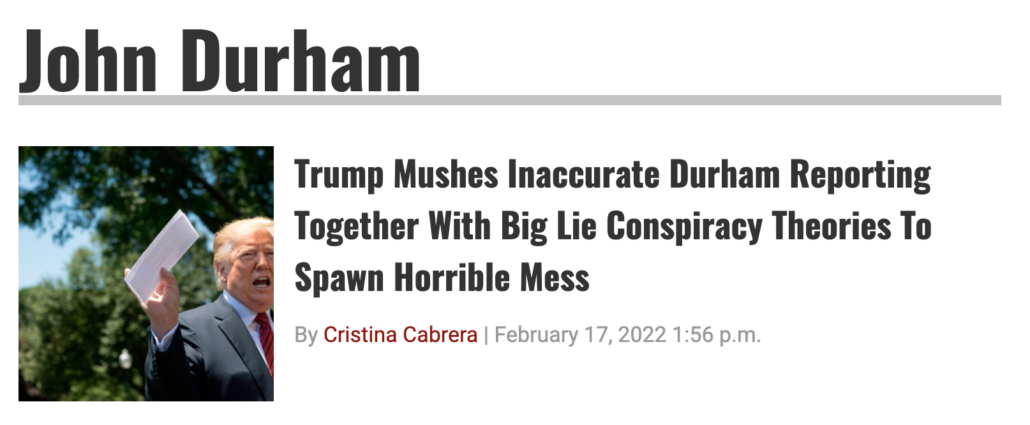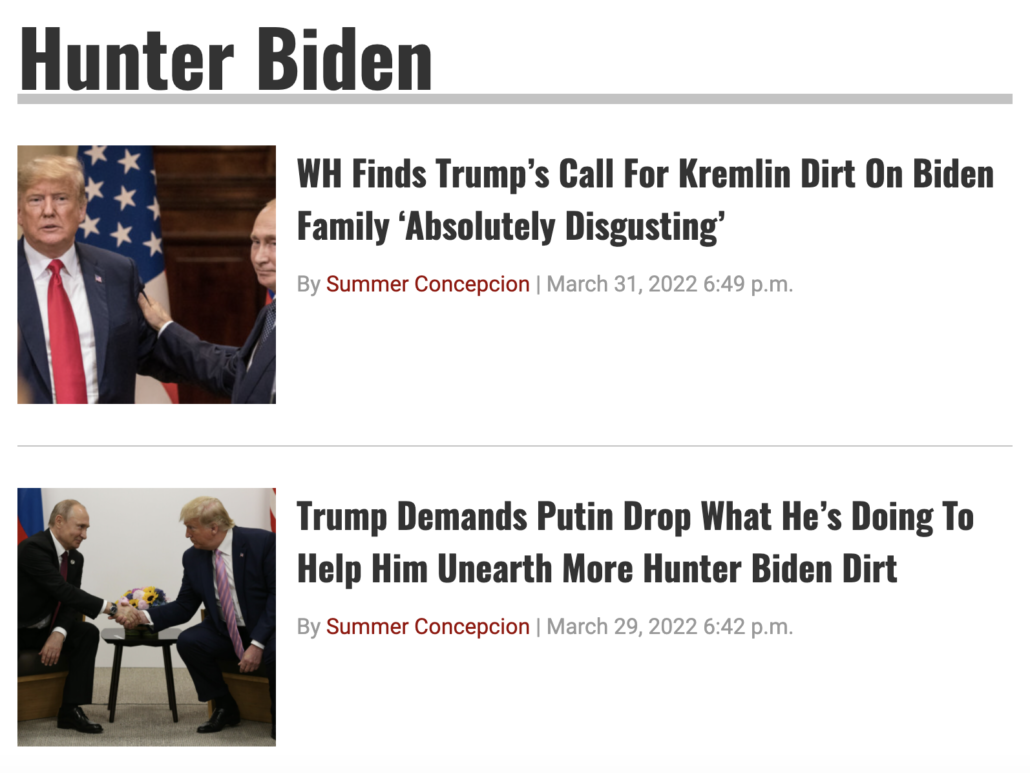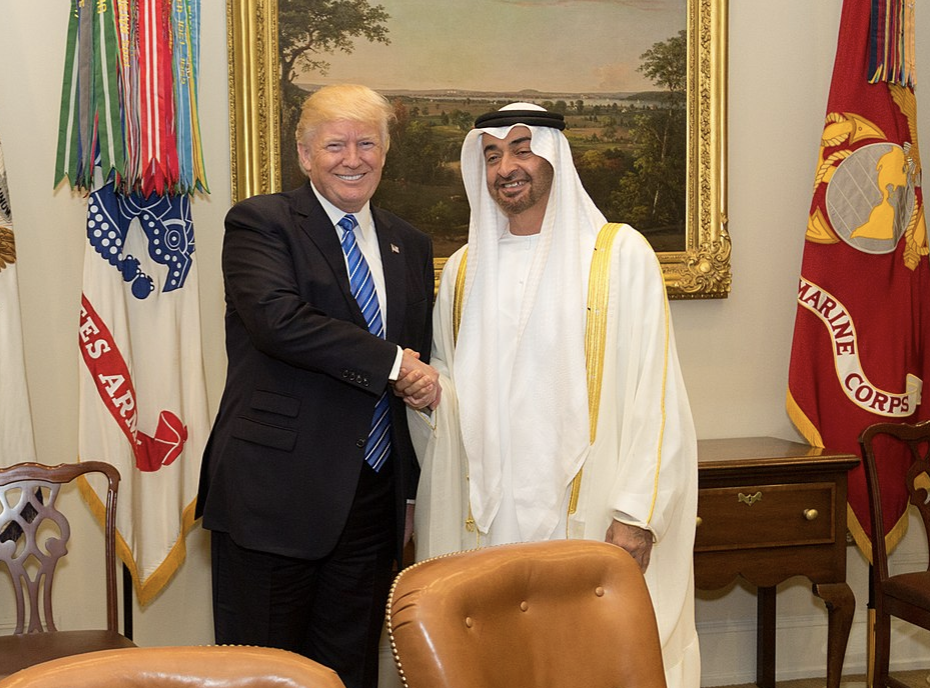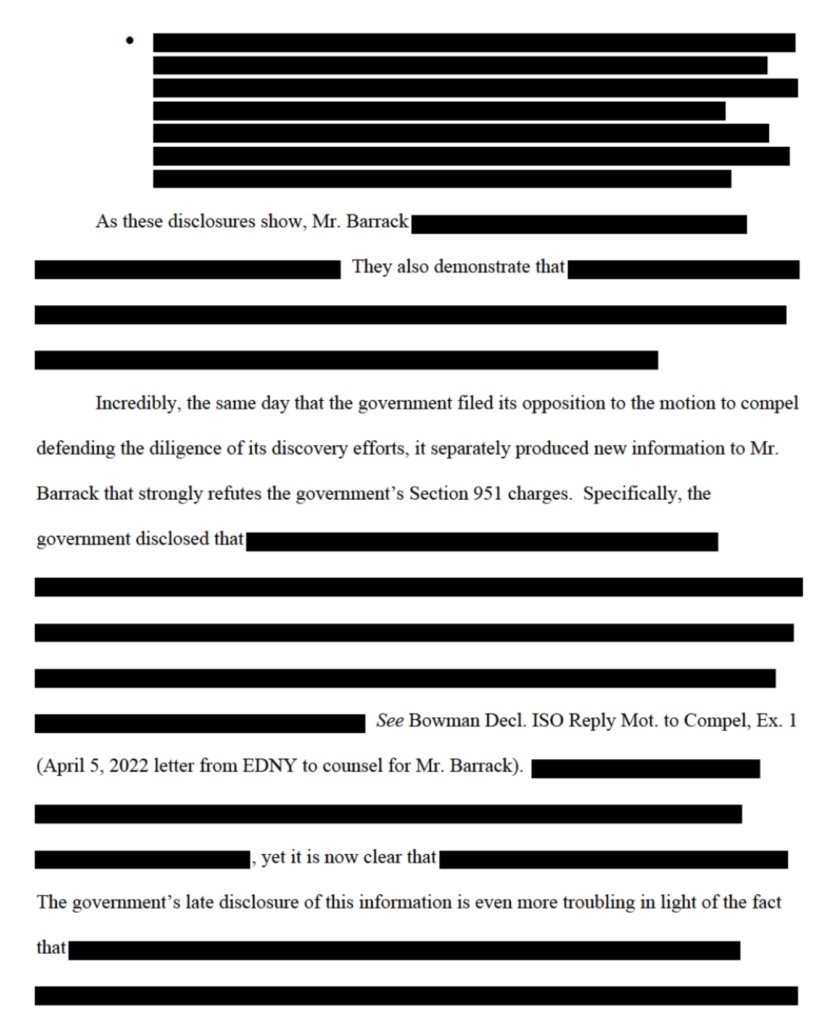Recently, Roger Stone invited George Papadopoulos onto his show to talk about how, even though Michael Sussmann was acquitted, it’s still proof of a grand conspiracy involving Hillary Clinton.
Stone invited Papadopulos to talk about how Durham and Billy Barr chased Papadopoulos’ conspiracy theories to Italy, which both the Rat-Fucker and the Coffee Boy seemed to take as proof that those conspiracies were true, even though Barr has publicly stated there was no there there.
The biggest news from Mr. Durham’s probe is what he has ruled out. Mr. Barr was initially suspicious that agents had been spying on the Trump campaign before the official July 2016 start date of Crossfire Hurricane, and that the Central Intelligence Agency or foreign intelligence had played a role. But even prior to naming Mr. Durham special counsel, Mr. Barr had come to the conclusion that he didn’t “see any sign of improper CIA activity” or “foreign government activity before July 2016,” he says. “The CIA stayed in its lane.”
Seemingly in hopes of finding details that Durham was ignoring, Stone asked Papadopoulos whether Durham had ever spoken to the Coffee Boy. Papadopoulos babbled for some time about his House testimony, then Stone followed up to get him to state that, no, Durham had never spoken to him.
Never.
Stone: You make a very good point. The fact that the Attorney General was on the trip means that he knows the origins of the Russian collusion fraud far earlier than other people realize. George, have you specifically met with either John Durham or representatives of his office to tell them what you know?
Papadopoulos: So, that’s a good question. In 2018, I was one of five witnesses who was invited by–under oath, behind closed doors–in front of the House Oversight Committee. And the other four witnesses, besides myself, were Rod Rosenstein, Sally Yates, uh, Jim Comey, and Loretta Lynch. Now, back in 2018, and there’s a Washington Post article, I think it’s called “Papadopoulos and Rosenstein about to testify behind closed doors,” back in 2018, people were scratching their heads, why on earth is George Papadopoulos one of four, one of five witnesses who is going to testify to both John Ratcliffe and Mark Meadows. Back then, obviously, before Mark Meadows was Chief of Staff at the White House and Ratcliffe was the head of DNI, they were Congressmen. They were in charge of the House Oversight Committee. During that testimony back then, both of those individuals who later served in senior White House, uh, Administrative capacities were asking me questions about wiretaps. They were asking me if I was being monitored while I was in Europe. They were asking me whether my lawyers were ever given so-called exculpatory information about any of, about Joseph Mifsud, any of these other type of operatives, both domestic and foreign. And I basically let them know, under oath, that I’m telling you. How I met him, what my background was, why I believe there was this target on my back, why I think it followed me all the way from the beginning, all the way until the summer of 2017, where they were, the FBI was trying to set me up while I was in Israel with this other bizarre exchange that I had, that I talk about in my book. So that testimony, I believe, was used with the Durham team, to help get this entire thing started, that’s how Durham and Barr flew to both to Rome, to talk to Italian intelligence services — not the FBI — to learn about Mifsud, and I believe — that’s why NBC has also been quoted as saying that Western intelligence officials have gone on the record and stated that it’s Papadopoulos’ breadcrumbs, if you want to call it that, that have led to Durham’s real conspiracy case that he’s trying to uh–
Stone: So, but to go to my direct question, have you had any direct contact with Durham or his office, or your attorneys?
Papadopoulos: No, I haven’t. No no no, no I haven’t. But my understanding is that that testimony, 2018, was used by the Durham, that’s my understanding.
This is fairly shocking — and damning news.
Papadopoulos’ testimony was not only not under oath (though committee staffers admonished the sworn liar not to do it to them), but it was a shitshow.
I’ve cataloged all the ways it was a shitshow below. But the fact that Billy Barr and Johnny D jumped on a plane together for their junket to Rome based off such a shitshow matters for two reasons.
First, it shows that they did no vetting of the conspiracy theories the Coffee Boy repeated in the hearing — which as I show below were really just rewarmed conspiracy theories parroted by John Solomon and Chuck Ross — before hopping on a plane for their junket. Importantly, one of those conspiracy theories was spread by Joseph Mifsud attorney Stephen Roh, who himself is suspected of sketchy ties to Russia.
The other reason it matters is because Durham’s Igor Danchenko prosecution treats Danchenko, whom the FBI found credible in 2017 and afterwards, as less credible than Sergei Millian. But George Papadopoulos, whose testimony Durham considered sufficiently credible to hop on a flight to Rome for, described Millian — in the context of details about his offer to hire him so long as he also worked in the Administration — as “a very shady kind of person.”
Q I guess there’s just one follow-up, because you said some kind of consultancy work for some — someone that Sergei Millian knew in Russia. What would have been the nature of that work? Like, what topic would the work have been on?
A My current understanding — and this is what I think it is, because this is a very shady kind of person — was that it was a former minister of some sort who had money and wanted to do PR work. But then, of course, we met in Chicago, and I felt that, you know, he was — I don’t know. I just felt that when he proposed this deal to me face-to-face that he might have been wearing some sort of wire. And he was acting very bizarre. And I don’t know what that was. Maybe I’m a paranoid person. But there were certain other events regarding Sergei Millian that made — that make me believe that he might have actually been working with the FBI.
Durham shouldn’t be able to have it both ways. If Papadopoulos’ testimony was deemed sufficiently credible, without any more vetting, to justify a taxpayer-paid trip to Rome, then his judgment that Millian is a “very shady person” the likes of whom might lie about a call with Igor Danchenko, then Durham should not rely on Millian’s unsworn Twitter ramblings for four charges against Danchenko.
In short, the fact that Durham hasn’t interviewed Papadopoulos at all, either before or after the junket, is yet more proof that Durham is hesitant to test any of his conspiracy theories with actual investigative work.
Catalog of Coffee Boy Testimony Shitshowery
One key piece of proof that Papadopoulos’ testimony before the Oversight Committee was a shitshow designed to elicit conspiracy theories about Mueller’s investigation rather than useful information is that the committee didn’t ask him for any emails or other records in advance — emails that Papadopoulos had earlier withheld from SSCI, with which request he only partly complied in 2019. Papadopoulos told the committee on at least 18 occasions he had emails or other records that would allow him to answer their questions — about when he joined the campaign, his communications with Olga Polanskaya, Joseph Mifsud, and Ivan Timofeev, his communications with Steve Bannon, Stephen Miller, Mike Flynn, KT McFarland, and Walid Phares, his communications with Sergei Millian, his meetings with Stefan Halper, his interactions with suspect Israelis — accurately, but that he couldn’t without those records. [Note the last several of these are out of order because I just kept finding more examples.]
1. Mr. Breitenbach. Is there any paperwork that you might have indicating when you actually began on the Trump campaign?
Mr. Papadopoulos. I believe we might have, we might have those emails.
Ms. Polisi. We have emails. We don’t have any official documentation.
Mr. Papadopoulos. I mean, if the emails would suffice, I think we have emails suggesting that I would be joining the campaign on this day, or Sam Clovis was telling me you’re on board, good job, or something like that.
[snip]
2. And I remember I even — where I’m going at is I don’t think I was talking to the same person [Olga Polanskaya]. That’s what I’m trying to say.
Q When you say talking?
A I mean writing back and forth.
Q By email? By text?
A Email. Email. And I remember there was even a point I messaged this person on Skype. And I said, are you the same person that I met a couple months ago or so? You know, it was just very odd. I think I, you know, I wrote that to her on Skype. Nevertheless, I think we could provide these emails of my interactions with this individual and Joseph Mifsud. What it seems was going on was that Mifsud was using her as some sort of Russian face or person.
[snip]
3. I could get into the details about what was going on with [Ivan Timofeev] or however —
Q Sure. A So I saw him as potentially the person that could, you know, introduce not only me, but the campaign to the people in the Russian Ministry of Foreign Affairs and then act as the key point man for this potential Trump-Putin submit. We exchanged emails. We could provide those emails to you.
[snip]
4. Q Did you arrange for anyone else to travel to Russia? Let’s just keep it specifically —
A Yeah.
Q — based on your contacts with Mifsud at this point.
A Yes. I reached out directly to Paul Manafort, you know, and Corey Lewandowski and the top — the heads of the campaign, and openly told them I’m trying to arrange this. I mean, they were fully aware of what I was doing. This is all in emails. I’m not sure if you have those emails. I’m happy to provide them to you. That I’m trying to set up this meeting. Are we interested or are we not interested.
[snip]
5. Mr. Meadows. Are you indicating that there are some things that were reported that are not accurate?
Mr. Papadopoulos. That’s a kind way to say it. Okay. Let’s go back to April. I can’t remember exact dates in April, but April, and maybe we can send emails and when could corroborate certain things. I’m in talks with an Israeli diplomat named Christian Cantor, who was introduced to me through, I guess a friend at the Israeli embassy in D.C. named Dore Shapiro, who was an economic counselor. And you have to remember I was very connected to Israel and what was going on. So that was my network.
[snip]
6. Q So how often was that, would you say? Like how often would you be sending an email? I mean, I know it’s a rough estimate, but —
A It depends on the timing. I mean, there was a point where it was very frequent, and then I took a pause, then started up again. I can’t give a number. I really can’t. But there’s a lot of emails, and those are all documented.
Q Okay. So when the transition started, you said that you became introduced to Michael Flynn and K.T. McFarland.
A Over email.
Q Over email.
[snip]
7. Q And what was that project that you were discussing with Sergei Millian?
A Well, this — I never properly understood exactly what we were talking about. I believe I was asking him for a contract. And I have to go back, and I could share notes later on, but I — just giving off my current memory, that he wanted to do some sort of PR or consultancy for a friend of his or somebody that he knew in Russia. And I believe the terms of the agreement would have been $30,000 a month and some sort of office space and in New York. But then I felt that he wasn’t who he seemed to be and that he was working on behalf of somebody else when he was proposing this to me. And — I mean, we could get into that.
[snip]
8. Q With regard to Olga, you mentioned that she discussed sanctions with you in your correspondence. Does that ring a bell?
A I believe she did over email.
Q And what was the position on sanctions that she expressed over email?
A I can’t remember exactly, but we are happy to share them with — we have those emails in case you don’t. And are more than happy to share them with you.
[snip]
9. Q Did [Timofeev] correspond with you about any geopolitical issues in email?
A We certainly exchanged some emails. I can’t remember exactly what’s in those emails, but I’m more than happy to provide them to the committee.
[snip]
10 and 11. Q I’d also like to ask you about some of the communications that you referenced earlier with Trump campaign officials. You said earlier that you provided notes on President Trump’s — then candidate Trump’s big foreign policy speech to Stephen Miller?
A Yes.
Q What was the substance of those comments?
A I can’t remember but I’m more than happy to share them, because it is all in an email form.
Q And you said that you communicated with Steve Bannon by email as well. Is that right?
A Yes.
Q Would you be —
A Email and a couple of phone calls. What was that?
Q Would you be willing to share those emails with Steve Bannon with us as well?
A I’m more than happy to share whatever emails I have with the campaign with the committee.
[snip]
12. Q You mentioned a number of emails where both of you would have been copied. Did you and Mr. Phares have any direct communication just the two of you?
A We met face to face at the TAG Summit. And then we obviously met at the March 31st meeting. And I can’t remember if we met another time in person or not. But we certainly were in correspondence for months over email.
Q Did you discuss your efforts to set up the Putin-Trump meeting with Mr. Phares?
A I’m not sure he was copied on those particular emails, but I could send whatever emails I have with him to the committee. It’s fine with me.
[snip]
13. Q Did you reach out to anyone on the Trump campaign that day?
A That particular day? Like, I think, Steve Bannon, you know, just to say we did it or something like that. I can’t — like I said, I could provide all these emails, I just don’t know. I really can’t remember exactly what I did on that specific day.
[snip]
14. A Sergei Millian reached out to me out of the blue on LinkedIn around sometime in late July 2016. I can’t remember exactly how he presented himself, but he basically stated that he’s an American of Belarusian origin who worked for Trump or his organization, and he could be helpful in understanding the U.S.-Russia relationship, and he might be a good person to get to know. So I thought this was probably one of Trump’s people and he’s reaching out to me. That’s a good sign. I have the message somewhere. I could always present it to the committee here. And then we met shortly after that in New York.
[snip]
Mr. Meadows. Do you know when in July of 2016, what the date was?
Mr. Papadopoulos. I’m not 100 percent sure, but I think it was around July 22nd. Mr. Meadows. And do you recall the date that you actually met with him?
Mr. Papadopoulos. I’m not even 100 percent sure of exactly the day in July. I could always go back in my records and provide that.
Mr. Meadows. That would be helpful. Those dates would be helpful, but when did you meet with him, in July or in August?
[snip]
15. You explained previously that Mr. — that Professor Mifsud had a connection to and introduced you to Ivan Timofeev. Is that right? A Via email, yes.
Q And did he explain at the time what the purpose of that introduction was?
A I assume he did. I just can’t remember exactly the language, the specific language of the introduction. But I have those emails and am more than happy to share that — those interactions with the committee.
[snip]
16. A I — as I’ve stated, I never met Timofeev in my life face-to-face, so I’m just trying to go back in my memory to see if he actually copied any Russian nationals on an email. I don’t recall that. But as I stated, I’m more than happy to share all communication I have with this person.
Q Great. Thank you.
A Yes.
Q Do you recall him introducing you to any other people in the emails or when you spoke to him by phone?
A I — I don’t recall. But they — but the emails should be in our possession, and we’re more than happy to provide them.
[snip]
17. Q Real quick, just following up on Congressman Ratcliffe’s questions in terms of timing with your conversation with Mr. Halper. You had mentioned it was sometime between September 13th through the 15th. But then you said that you had left London by flight, I suppose. So you might have a record on the day that you left?
A Yes.
Q And you think you met with him the day before you left.
A Yes.
Q Is that something you could provide to us?
A I believe so, yes. It shouldn’t be too hard.
[snip]
18. Mr. Meadows. So I want to follow up on one item from the previous hour, where you had talked about Mr. Tawil. I guess you had not heard from him about the $10,000. And then all of a sudden, you get an email, I assume an email out of the blue saying he wants his $10,000 back. Is that correct?
Mr. Papadopoulos. My memory of the past year, and any interactions I had with this individual — I’m more than happy to share his emails with the committee — was that he would reach out to me indirectly through contacts of mine, and ask how was George doing, what’s his news, even though I was all over the global media at that time. And I don’t remember him ever asking for his money back, even though I had offered to give him his money back, shortly after I left him in — wherever I left him. And going back into my records, I just looked at my email, and we can provide this to you, I think 2 days after I was sentenced, I think — so, September 9th of last month, he sends me an email and he says, not only am I thinking about suing you, but I want my money, and let’s act like we never met. Something along those lines.
Without these emails, the testimony was guaranteed to be useless with respect to 2016, but it gave Papadopoulos the opportunity to engage in wild conspiracy theorizing. The Coffee Boy didn’t much remember the events of 2016, but he did remember what he read in the Daily Caller, the Hill, and the NYT in the weeks before his testimony, which is what he spent much of his testimony telling Congress about.
A You know, I don’t want to espouse conspiracy theories because, you know, it’s horrifying to really think that they might be true, but just yesterday, there was a report in the Daily Caller from [Joseph Mifsud’s] own lawyer that he was working with the FBI when he approached me. And when he was working me, I guess — I don’t know if that’s a fact, and I’m not saying it’s a fact — I’m just relaying what the Daily Caller reported yesterday, with Chuck Ross, and it stated in a categorical fashion that Stephan Roh, who is Joseph Mifsud’s, I believe his President’s counsel, or PR person, said that Mifsud was never a Russian agent.
In fact, he’s a tremendous friend of western intelligence, which makes sense considering I met him at a western spying school in Rome. And all his interactions — this is just me trying to repeat the report, these are not my words — and when he met with me, he was working as some sort of asset of the FBI. I don’t know if that’s true or not. I’m just reporting what my current understanding is of this individual based on reports from journalists.
[snip]
But I guess the overwhelming evidence, from what I’ve read, just in reports, nothing classified, of course, because I’m not privy to anything like that, and considering his own lawyer is saying it, Stephan Roh, that Mifsud is a western intelligence source. And, I guess, according to reports yesterday, he was working with the FBI. I don’t know if that’s true or not. I’m just here to, you know, maybe, you know, let you — direct you in certain directions of what I’ve read and maybe, in case you haven’t read it.
[snip]
Mr. Meadows. Are you aware of any potential exculpatory evidence that would exist that you just have not seen or your counsel have not seen?
Mr. Papadopoulos. I read John Solomon’s report, like I think probably everyone in this room did from The Hill a couple days ago, about Stefan Halper, which is another person. But in regarding Downer, no, I haven’t seen anything like that.
[snip]
Q Were you — are you aware of any other transcripts or recordings or exculpatory materials as Mr. Meadows referenced?
A This is what I currently understand. I read the John Solomon report about the Stefan Halper, I guess, tapes or recordings of some nature. And so — my old lawyer or — all I — my understanding is that they had a — that they gave me, my old lawyers, a passing reference to something about — I said about treason, and I am — no, about the exculpatory.
[snip]
A My current memory makes me believe that he was stating it as a fact, and I took it as well.
Q And did you believe him at the time?
A At the time, yeah.
Q And so —
A But at the time, also, I thought he was validating rumors. So that was really my impression of him. I mean, you have to understand this is a person who sold himself as the key to Moscow but then really couldn’t deliver on any one of real substance except Putin’s fake niece and the think tank analyst, and then now he’s drooping this information on me. It was very confusing. You can understand how confusing this process was over the month.
Q Do you not believe him now, given what you’ve learned, or do you — you know, do you continue to believe that he was given information that the Russians had Hillary Clinton’s emails?
A I’m not a conspiracy theorist. Everything I’ve ever tweeted or — probably, if that’s what you’re referring to, it’s just backed by things I’ve read in the media. And it’s not my job to dig into this person, because I really don’t care about this person. And legally, I’m not even allowed to talk to him directly or indirectly. So all I can do is read reports, read what his lawyer is saying, and take it with a grain of salt and just share that information with you that his lawyer, yesterday, said that he was working with the FBI. Was he? Is his lawyer a crazy person who’s slandering his client, or was he really working with the FBI and this was some sort of operation? I don’t have the answer to that, and I’m not sitting here telling you I do have the answer to that.
[snip]
Mr. Papadopoulos. Just who I am, my background in the energy business, because everyone was curious about my background in the energy business in Israel. And that’s another thing we’ll get to about what I think why I had a FISA on me, but I don’t know. She then apparently — I don’t remember it, I’m just reading The New York Times. She starts asking me about hacking. I don’t remember her actually asking me that, I just read it in The New York Times. Nevertheless, she introduces me the next time to Stefan Halper.
Mr. Meadows. She asked you about hacking?
Mr. Papadopoulos. I don’t remember it. I just — I think I read that particular —
Mr. Meadows. You’ve read that?
Mr. Papadopoulos. Yes, that’s what I — I think I read it in The New York Times.
[snip]
Mr. Meadows. You say a transcript exists. A transcript exists of that conversation?
Mr. Papadopoulos. That’s I guess what John Solomon reported a couple days ago.
Mr. Meadows. So are you aware of a transcript existing? I mean — Mr. Papadopoulos. I wasn’t aware of a transcript existing personally.
Mr. Meadows. So you have no personal knowledge of it?
Mr. Papadopoulos. I had no personal knowledge, no.
Mr. Meadows. But you think that he could have been recording you is what you’re suggesting?
Mr. Papadopoulos. Yes.
Having used the stories of Stephen Roh and John Solomon — key players in Russian influence operations — to float conspiracy theories about the Coffee Boy being set up, both Mark Meadows and John Ratcliffe then cued Papadopoulos to attack the Mueller investigation.
For example, Meadows suggested that the FBI had not read Papadopoulos his Miranda rights and had improperly searched his bags.
Mr. Meadows. They told you — I guess, they gave your Miranda rights?
Mr. Papadopoulos. I don’t remember that. I don’t remember that. I’m sure there might be the video or a transcript of what was going on. You have to understand, I had just come off a trans-Atlantic flight.
In fact, when Papadopoulos told agents he was still represented by an attorney, they told him they would ask no further questions, read his rights and marked the Miranda form as waived. But even after being warned not to say anything without his lawyer present, he kept offering unsolicited comments. And in spite of Meadows’ insinuations, while in FBI custody Papadopoulos thanked the FBI agents for treating him well.
Meadows also found it deeply suspicious that the FBI would ask Papadopoulos to wear a wire to record Joseph Mifsud.
Mr. Meadows. Now, this is the same agent that said that he knew that you had said something. Is that the same person?
Mr. Papadopoulos. Same guy.
Mr. Meadows. And so, he was the one that said you had definitely — I want to make sure that we’re accurate with this. If you’ll — because the name keeps coming back. When you said you didn’t know what you had said to Mr. Downer, it’s the same agent that said, Oh, yes, you said it. Is that correct?
Mr. Papadopoulos. That’s how I remember it, yes.
Mr. Meadows. Okay. So go ahead.
Mr. Papadopoulos. So I told him, I’m not interested in wearing a wire.
Mr. Meadows. So on your second meeting with the FBI, they asked you to wear a wire?
Mr. Papadopoulos. Against Mifsud.
Mr. Meadows. Against Mifsud, who they believed at that time was doing what?
Mr. Papadopoulos. Well, I guess —
Mr. Meadows. Why did they want you to wear a wire for Mifsud?
The reason Meadows is so bothered that the FBI tried to investigate a suspected Russian agent is that he wanted proof that that Papadopoulos himself was taped. He was looking for something specific: transcripts.
Mr. Meadows. So as we look at this, I think getting our head around all of this is just — it’s hard to believe that it happened in the United States of America. And I think that that’s the trouble that I have with it. And I’ve seen nothing in the classified setting. I want to — for the record, I purposely have not gone into a classified setting to see things so that I can try to put this piece of the puzzle together. It is my belief that you were taped at some point or another by one of these officials, whether it be Mifsud or whether it be Downer or whether it be Halper. I don’t know which one of them did it, but I believe that certainly it is my strong belief that you were taped. Has anyone in the Department of Justice indicated to you that they may have a tape of a private conversation that you had with anyone of those three individuals?
The goal of Meadows and John Ratcliffe — probably the entire point of the hearing, which took place in the wake of a John Solomon article reporting on the topic — was to suggest that George Papadopoulos was deprived of exculpatory evidence, transcripts from his interactions with Halper, before he pled guilty and that he wouldn’t have pled guilty had he received it. Coached by Meadows and influenced by things he read at the Daily Beast, Papadopoulos says maybe the whole thing was a set-up.
Mr. Meadows. I guess if they had that, wouldn’t, before you pleaded guilty, wouldn’t that be something that they should have provided to you or let you know that there was exculpatory evidence out there?
Mr. Papadopoulos. Absolutely. And that would have changed my calculus 100 percent.
Mr. Meadows. Okay. So you, perhaps, would not have pleaded guilty if you knew that there was this tape of a private conversation with one of the three individuals that I just mentioned?
Mr. Papadopoulos. That’s correct. I guess, my thought process at the time —
Mr. Meadows. Because it could potentially have been a setup.
Mr. Papadopoulos. Absolutely could have been. And just going back in my memory, I guess the logic behind my guilty plea was that I thought I was really in the middle of a real Russia conspiracy, that this was all real, and that I had to plead out or face life in prison, the way they were making it seem. And after this conversation and after much information that’s come out, it’s clear that my — I was completely off on my calculus?
Here’s how former US Attorney Ratcliffe quizzes Papadopoulos about whether he was asked about his conversations with a confidential informant.
Mr. Ratcliffe. Again, to be real clear, the special counsel investigating collusion, potential collusion, or links between the Trump campaign and the Russian Government never asked you, the person around which this investigation was opened and centered, about any communications you had with an individual where you expressed that there was no collusion between the Trump campaign and the Russian Government?
Mr. Papadopoulos. That’s what I remember, yes.
Mr. Ratcliffe. The reason I’m asking these questions, Mr. Papadopoulos, is your credibility is at issue, and will be at issue, because you have pled guilty to an 18 U.S.C. 1001 charge of lying to the FBI. And so there will be those that will call into question the truthfulness of your testimony. If you’ve lied to the FBI before, how do we know that you’re telling us the truth? But if there is a transcript of a conversation that you had where you expressed that you had no knowledge about collusion, that might corroborate your testimony. It might also raise obligations, obligations to you as a defendant, to your lawyers as defense counsel, and to various judges as arbiters of material facts.
Here’s how Meadows asked the same question.
Mr. Meadows. Both. I mean, obviously if the special prosecutor is trying to get to the truth and you’re having substantial conversations with Stefan Halper and they don’t ask any questions about it, I find that curious. Do you find that curious?
Mr. Papadopoulos. Now I do.
There are a few problems with Meadows and Ratcliffe’s story. First, Papadopoulos made clear that his lawyers did get the substance of the transcript in question, where Papadopoulos likened what Roger Stone did to treason.
Mr. Meadows. About recordings or transcripts of Mr. Halper?
Mr. Papadopoulos. I never saw anything, but my lawyers, to be clear, they had made a passing remark about something that I said about treason —
Worse still, when Meadows asked Papdopoulos about his conversation with Halper, the Coffee Boy tried to claim his purported disavowal of “collusion” was made to someone he never imagined could be investigating him.
Mr. Meadows. So when you pushed back with Stefan Halpern [sic], and you said, Listen, this is, you know, I’m not going to do that and colluding with the Russians would not be something that I would do. It would be against the law — I don’t want to put words in your mouth — you had no knowledge of being under an investigation at that particular time, is that correct?
Mr. Papadopoulos. So, that’s absolutely correct, and if I had even a scintilla of proof or belief that Stefan Halper was an FBI agent, there’s no way I would have be going and talking to him — I just wouldn’t, I don’t think I would. I don’t think anybody would be running into some sort of operation against themselves.
That’s false. According to the DOJ IG Report, he told another informant he thought Halper would tell the CIA what he said.
Papadopoulos said he believed Source 2 was going to go
and tell the CIA or something if I’d have told him something else. I assume that’s why he was asking. And I told him, absolutely not …. it’s illegal, you know, to do that.. .. [my emphasis]
That is, Papadopoulos admitted to a second FBI informant that he said what he had to Halper precisely because he believed Halper might share what he said with the IC.
Which is among the reasons the FBI believed his answer was a rehearsed cover story in real time.
Now, Papadopoulos’ claim that he never imagined Halper might tell the FBI what he said when in fact he said the nearly the opposite in real time is not the only false claim he made to Congress before Billy Barr and Johnny D went on their junket chasing his conspiracy theories.
This answer, for example, is mostly word salad. But it hides that Papadopoulos continued to pursue a meeting with Russia until September 2016, months after he reached out to Paul Manafort. The word salad obscures a topic — his later effort to set up a meeting with Russian — that Papaodpoulos refused to explain to Mueller.
And to the best of my understanding, that’s when, you know, I really stopped engaging about this Trump-Putin potential meeting.
[snip]
Q Were there other interactions with Mifsud about, I think I read about possibly setting up a trip to Russia about campaign officials? Is there other things you worked on with him aside from the Putin summit? A Yeah, I think what we were trying to do is bring — I was trying to bring the campaign, I think Sam Clovis and Walid Phares and I, we were talking about potentially going to Europe and meeting officials together. And I was trying to see who Mifsud potentially knew in the U.K., or in other parts of Europe that could facilitate that meeting. Of course, we never did it. I think Sam Clovis ended up telling me I can’t make it, I’m too busy, but if you and Walid want to go to this, whatever you’re trying to put together, go ahead. That’s what I remember.
Q And did that trip ever happen?
A I never traveled with Walid Phares, no.
Q Did you arrange for anyone else?
A What was that?
Q Did you arrange for anyone else to travel to Russia? Let’s just keep it specifically —
A Yeah.
Q — based on your contacts with Mifsud at this point.
A Yes. I reached out directly to Paul Manafort, you know, and Corey Lewandowski and the top — the heads of the campaign, and openly told them I’m trying to arrange this. I mean, they were fully aware of what I was doing. This is all in emails. I’m not sure if you have those emails. I’m happy to provide them to you. That I’m trying to set up this meeting. Are we interested or are we not interested. So Corey Lewandowski was informed, Paul Manafort was informed, Sam Clovis was informed about what I was doing and what my progress, I guess, if you want to call it that, was.
“It is a lot of risk,” the notes that Papadopoulos refused to explain appear to have said about a September meeting with Russia, originally scheduled for the same dates as he met Halper.
And when Democratic staffers tried to get back to the gist of the issue — away from the transcripts capturing coached answers Papadopoulos told because he thought the answer might get back to the CIA and to the charged conduct — Papadopoulos’ lawyer refused to let him answer.
Q Is it your position here today that you did not lie to the FBI during your first interview?
Ms. Polisi. I’m just going to advise my client not to answer that.
In several such interactions, the Democratic staffers identified material discrepancies between what Papadopoulos said to a Committee of Congress and what he had sworn to in his guilty plea.
So Mr. Papadopoulos, why did you lie to the FBI and claim that your interactions with Professor Misfud occurred before you became a foreign policy adviser to the Trump campaign?
Ms. Polisi. I’m going to object to this line of questioning.
Ms. Shen. What’s the objection based upon?
Ms. Polisi. We are here on a voluntary basis. We have answered all of your questions thus far. It is my advice to him that he not talk specifically about the offense conduct.
[snip]
Q Can you please turn to page 4. Mr. Papadopoulos, I believe earlier in this round, we were asking about your interviews with the FBI, and I believe that you said that you had brought up to the FBI the — the professor and your conversation with him. Is that correct?
A That is what I remember.
Q So if you could take a look at footnote 2 on this page, page 4, in the second paragraph, it reads, “To the contrary, the defendant identified the professor only after being prompted by a series of specific questions about when the defendant first learned about Russia’s disclosure of information related to the campaign, and whether defendant had ever, quote, ‘received any information or anything like that from a Russian government official’ unquote. In response, while denying he received any information from a Russian Government official that further identified the professor by name, while also falsely claiming he interacted with the professor ‘before I was with Trump though.'” Mr. Papadopoulos, what you just said earlier today during this interview doesn’t seem to jive with the information in this footnote. Can you explain the discrepancy?
Ms. Polisi. I’m still going to object to this line of questioning. I disagree with your characterization of his previous testimony. What’s written is written, you read it into the record.
Ms. Shen. Well, he just agreed with my characterization.
Ms. Polisi. No, he did not. He did not. He did not agree with your characterization.
Ms. Shen. I asked him if what we talked about earlier was correct — on the record.
Ms. Polisi. That is correct.
Ms. Shen. And then I read the paragraph from his sentencing memorandum, and you are not allowing him to respond to that.
Ms. Polisi. Correct, I’m not allowing him to respond to that.
I guess it makes sense that Durham would not interview Papadopoulos after this performance. It’s not actually clear whether he could tell the truth, and if he did, the truth — that the Coffee Boy was still pursuing a risky back channel to Russia even after the investigation into him was opened — would utterly destroy the objective of the Durham investigation.
So in the same way that Durham never subpoenaed Jim Baker before basing an entire indictment on his testimony, Durham never spoke to Papadopoulos, who would testify that in the same weeks when — Durham claims — Danchenko believed he had a sketchy call with Millian, Papadopoulos started having similar calls with the “very shady person” that Durham has made the centerpiece of his case against Danchenko.


![[Photo: National Security Agency, Ft. Meade, MD via Wikimedia]](https://www.emptywheel.net/wp-content/uploads/2017/08/NationalSecurityAgency_HQ-FortMeadeMD_Wikimedia.jpg)
